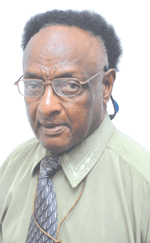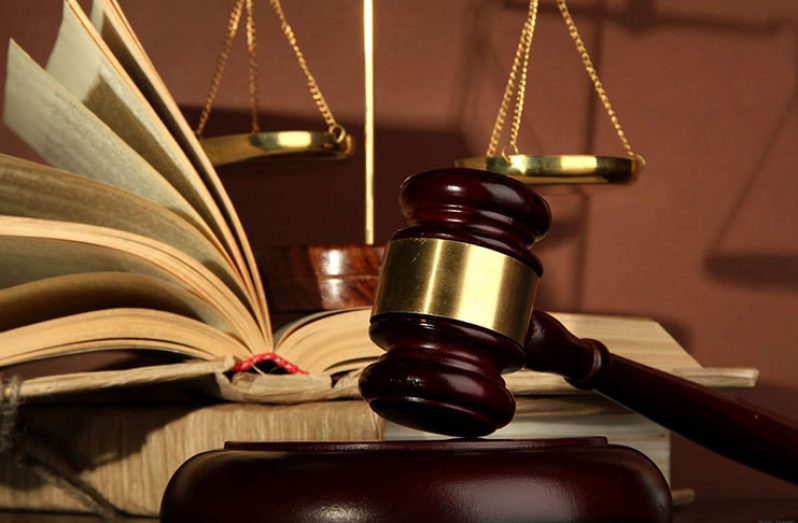Freed by Appellate Court – 1967
IN 1966 rape accused Samuel Dubar who was convicted of rape and jailed for four years

after an Assize jury treated bits and pieces of evidence as – corroboration – in keeping with a trial judge’s direction, was freed on appeal by the Court of Appeal in 1967.
The facts disclosed that on May 21, 1966, a girl who gave her age as being “now in 14 years” was dipping water from a trench when the appellant suddenly came up behind her, held her hand and threw her to the ground. He then choked her, removed her underwear and had sexual intercourse with her. There were no external signs of injury and the medical examination revealed rupture of the hymen in two or three places but the doctor gave evidence that they were consistent with sexual intercourse at least two weeks before or longer.
The girl alleged that the appellant was the first man who ever had sexual intercourse with her and that it took place that very day. The appellant gave a written statement to the police on May 23, 1966 which he adopted from the dock at his trial, to the effect that they were friends and had had sexual intercourse sometime before.
He alleged that he had asked her for sex that day but she had declined saying that he was to be engaged to another girl in a few days’ time.
He vehemently denied the allegation of rape.
On appeal against his conviction and sentence – HELD – (Luckhoo, J.A., delivering the judgment of the Court) that (i) although there was ‘opportunity’ and ‘desire’ on the part of the appellant to have sexual intercourse with the girl, those aspects could not be considered in isolation since they were wedded to other elements in the statement which sought to explain how the desire arose, why nothing came of the opportunity and a possible motive for the allegation.
The trial Judge in referring to this ‘opportunity’ and ‘desire’ gave an unrealistic picture of the defence since they were only two circumstances in the context of other related and germane answers; (ii) further , when those ‘bits’ and ‘pieces’ of evidence were placed before the jury , they were in effect , being invited to treat it as corroboration , after they had been clearly told that no corroboration existed ; (iii) although the sworn evidence of a child need not be corroborated as a matter of law , the jury should be warned, not that they must find corroboration, but that there is a risk in acting on the uncorroborated evidence of young boys or girls, though they may do so if convinced that the witness is telling the truth; (iv) a girl ‘in her fourteenth year’ should fall within the category of a young girl and (v) the requirements of warning the jury of the danger of acting on the uncorroborated evidence of a young child is no longer a matter of discretion for the trial judge but a preemptory prerequisite.
Appeal allowed – Conviction and sentence quashed.
F. R. Wills for appellant.
J. Gonsalves-Sabola,Assistant Director of Public Prosecutions, for Respondent.
Justice of Appeal Luckhoo who delivered the judgment said: The appellant was convicted of having carnal knowledge of Albertha Payne , without her consent, on the 21st day May, 1966, contrary to section 76 of the Criminal Law (Offences) Ordinance , Chapter 10, and was sentence to be imprisoned for four years.
In her evidence the victim had said: “The accused was the first man with whom I ever had sexual intercourse and it was on that day.”
The trial judge directed the jury that there was no corroboration to be found in the case ; and that in view of the medical evidence they should find that she was not speaking the truth when she said the incident of the 21st May, 1966 , was her first experience. He said: “It seems the doctor’s evidence gives the lie to that; but it does not mean that you have to reject all of her evidence”.
It would be apparent, therefore, that because of the age of the girl, the absence of corroboration and the probability that she had lied on the question of not having sexual experience before, the necessity for a very careful summing-up throughout was essential.
On the second ground, the learned trial judge told the jury:
“ The law says that when there is no corroboration in a case of this type – a sexual offence , that it is dangerous and unsafe to convict and I must accordingly warn you , as I hereby do, that it is unsafe and dangerous to convict on the evidence of Albertha Payne, alone.”
They were not similarly warned anywhere in the summing-up that for another reason, viz, because of her age , there was a danger in coming to a conclusion adverse to the appellant on her uncorroborated evidence.
There may be different reasons for the exercise of caution in the different instances where corroboration is required. Children, it is said, are more susceptible to the influences of third persons and may allow their imagination to run away with them.
In sexual cases the charge may be promoted by hysteria or spite; it is so easy to make and so difficult to disprove.
In the case of an accomplice , there is the danger that the accomplice will minimize his role in the crime and exaggerate that of the accused in his efforts to exculpate himself and inculpate the other and so on..
The sworn evidence of a child need not be corroborated as a matter of law, but a jury should be warned , not that they must find corroboration, but that there is a risk in acting on the uncorroborated evidence of young boys and girls, though they may do so if convinced that the witness is telling the truth (Per LORD GODDARD R. v Campbel at l, (1956) 2 A.E.R.p 272 at page276).
In this case we find that certain directions invited the jury to give a probative value to portions of the appellant’s statement beyond their capacity. That may have made all the difference to the jury’s verdict, and so we were constrained to allow the appeal.
Appeal allowed – conviction and sentence quashed.





.jpg)








